PICK OF THE MONTH
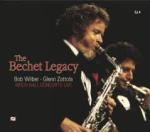 Bob Wilber & Glenn Zottola
Bob Wilber & Glenn Zottola
The Bechet Legacy: Birch Hall Concerts Live (2 discs)
Inner City & Classic Jazz
2700047
Rick’s Pick
The musical legacy of Sidney Bechet can be summed up in one word: joy. Any lover of traditional New Orleans jazz speaks his name with reverence. A contemporary of Louis Armstrong and a pioneer on his instrument (the soprano saxophone, though he started out as a clarinetist), Bechet was both a primally important exponent of traditional jazz and one of the early shapers of Latin jazz. This budget-priced two-disc set documents a tribute concert played in 1981 by saxophonist Bob Wilber and trumpeter Glenn Zottola, leading a sextet that also included pianist Mark Shane and the great drummer Butch Miles. They play a program that includes compositions by Bechet, Armstrong, and Duke Ellington and that conveys the joy of Bechet’s playing with a sense of effortless grace and truly powerful swing. Wilber is especially impressive on both soprano sax and clarinet, but the album shines brightest during the ensemble sections, the band working together as tightly but freely as if they were connected by elastic bands. The recording quality is generally good, but unfortunately the mic placement leaves something to be desired; guitarist Mike Peters plays several very fine chord solos that are nearly inaudible. But even with the minor sonic flaws, this set is a must-own for any jazz collection.
CLASSICAL
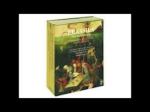 Various Composers
Various Composers
Erasmus Van Rotterdam: Praise of Folly
La Capella Reial de Catalunya; Hesperion XXI / Jordi Savall
Alia Vox (dist. Harmonia Mundi)
9895 A/F
Known as the “Prince of Humanists,” Erasmus of Rotterdam was a forward-thinking Catholic priest and intellectual who preached religious tolerance at a time when it was dangerous to do so, and was also a hugely popular author in 16th-century Europe. This loving and beautiful (if slightly unwieldy) tribute to Erasmus’ writing and thought consists of a thick hardback book into which are inserted six CDs containing both vocal and instrumental music from the period, along with readings from Erasmus’ various publications. There is actually only three discs’ worth of audio content here: the first three discs alternate music and readings, while the second set of three contains the music without the readings. (I couldn’t find anything in the accompanying materials to confirm or debunk this impression, but I get the impression that the music is all compiled from earlier Savall recordings.) There are extensive notes about Erasmus and his work, and the texts of all the readings are provided in seven languages. For some libraries this set may be too much of a good thing, but there’s no questioning the quality of the content.
 Peter Fribbins
Peter Fribbins
The Moving Finger Writes
Various Performers
Guild (dist. Albany)
GMCD 7381
This disc presents a nice variety of small- and large-scale works by the British composer Peter Fribbins: a string quartet (performed admirably by the Chilingirian Quartet), a Haydn homage for solo piano, a piano concerto, and a set of two fantasias for viola and piano. Fribbins is a modernist, but one unafraid of expressive immediacy, and the piano concerto in particular owes much to the Romantics. But my favorite piece is the pair of fantasias, one of them based on a Welsh folk tune and the other on a song from Hungary: their stark and astringent melodies and understated intensity are particularly attractive. The performances are all excellent.
 Carl Philipp Emanuel Bach; Ludwig Van Beethoven
Carl Philipp Emanuel Bach; Ludwig Van Beethoven
[Works for Piano]
Cameron Watson
MSR Classics (dist. Albany)
MS 1409
Rick’s Pick
With this album, pianist Cameron Watson has put together a recital program that makes an argument. The argument is that “a subliminal affinity is present in the line from [C.P.E.] Bach through Haydn and then to Beethoven.” If I were more of a musicologist I would probably perceive that line more clearly; instead, what I hear is transitional music by Bach juxtaposed with fully romantic sonatas by Beethoven. It’s a gorgeous program (and brilliantly played) regardless of the musicological argument, and thus equally recommendable as an attractive addition to any piano collection and a potentially strong support to academic programs.
 Mabrianus de Orto; Josquin Desprez
Mabrianus de Orto; Josquin Desprez
Musique à la Chapelle Sixtine autour de 1490
Cut Circle / Jesse Rodin
Musique en Wallonie (dist. Allegro)
MEW 1265-1266
Rick’s Pick
Though universally considered one of the most towering figures in Renaissance music, Josquin Desprez is also one of the most mysterious, a composer about whose life little is known and many of whose works are attributed to him only tentatively. One thing we know for certain: he both sang and composed as a member of the Sistine Chapel choir in the late 1400s, and did so alongside several other composers whose work is virtually unknown today. These included Gaspar van Weerbeke, Bertrandus Vaqueras, and Mabrianus de Orto. This ravishing two-disc set brings together world-premiere recordings of Masses and other liturgical pieces by these contemporaries along with several undisputed Josquin works (including the L’homme armé and Fortuna desperata Masses) in a beautiful, jewel-case-sized hardbound book. The performances by Cut Circle are excellent. Highly recommended to all early music collections.
 Robert Carl
Robert Carl
From Japan
Various Performers
New World (dist. Albany)
80732-2
The title of this collection of electro-acoustic chamber music says it all. Though Robert Carl is not himself from Japan, Japanese aesthetic principles (including the suspension of time, a concern for the perfection of individual sounds, and the expressive use of silence) deeply inform all of these pieces, most of which are written for combinations of fixed electronic media and wind instruments (including the shakuhachi, an end-blown bamboo flute). I found all of the works both involving and enjoyable, with the slight exception of the rather aimless-sounding “Brown Velvet” for bassoon and live electronics. Recommended overall.
 Various Composers
Various Composers
Neapolitan Flute Concertos II
Carlo Ipata; Auser Musici
Hyperion (dist. Harmonia Mundi)
CDA 67884
“Volume 2”? How did I miss volume 1? Obviously I wasn’t paying close enough attention (it came out three years ago), and now I kind of regret it, because this program of late baroque and early classical flute concertos from 18th-century Naples, all played exquisitely on period instruments by flutist Carlo Ipata and the Auser Musici ensemble, is a complete delight. The five works presented here are by five different composers, all of them fairly obscure: David Perez, Antonio Palella, Carlo Cecere, Francesco Papa, and the very obscure Geraso (whose full name remains unknown). This is a very fine recording and one that should be acquired by all library collections with an interest in flute repertoire, early music, or both.
 Francisco Guerrero
Francisco Guerrero
Requiem (reissue)
Orchestra of the Renaissance / Richard Cheetham; Michael Noone
Glossa Cabinet (dist. Qualiton)
GCD C81402
Rick’s Pick
Here’s my problem with Mozart’s Requiem Mass: too bombastic. Yes, it’s a work of genius, but it seems to me that a Requiem ought to be less about the composer’s genius and more about the issue at hand: death and the prospect of eternal life. So I gravitate more towards funeral masses by the likes of De La Rue and Ockeghem – and, most assuredly, Francisco Guerrero, one of the greatest composers of Spain’s Golden Age. This brilliant recording, originally issued about 13 years ago, imagines how the music might have been presented in 1599 at the composer’s own death, with interstitial plainchant and shawm-and-sackbut accompaniment. The all-male choir has a hushed but tonally rich sound, and the recording is a triumph all around. If you didn’t pick up the original release, snap up this reissue.
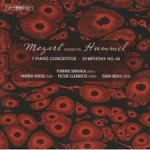 Mozart/Hummel
Mozart/Hummel
7 Piano Concertos; Symphony no. 40 (reissue; 4 discs)
Fumiko Shiraga; Henrik Wiese; Peter Clemente; Tibor Bényi
BIS (dist. Qualiton)
BIS-9043
In the early 19th century, it was common practice for a composer to pay homage to another by rearranging his music, usually from large-scale to chamber settings. Hence this tribute by Johann Nepomuk Hummel (a piano virtuoso and accomplished composer in his own right), who published a set of Mozart piano concertos arranged for piano, flute, violin, and cello. These arrangements have been somewhat controversial, and for that reason alone would deserve a place in an academic collection—but they are also beautifully performed here (on modern instruments) and for this reissue the original releases have been conveniently boxed and attractively priced. The program also includes a quartet arrangement of one of Mozart’s “Great G Minor” Symphony. Recommended.
Johann Gottlieb Janitsch
Berliner Quartette (reissue)
(reissue)
Il Gardellino
Accent (dist. Qualiton)
ACC 24262
Rick’s Pick
Johann Gottlieb Janitsch was a double bass player in the Berlin court of King Friedrich II, who was himself a musician and composer and a legendary patron of the arts. The quartets on this recording were written for a weekly musical gathering intended to give the court musicians a chance to play music that pushed them a bit beyond the very conservative tastes of the king, and those who listen carefully will hear innovative and unusual scoring and forward-thinking melodic elements at play beneath the refined and decorous North German, high-baroque veneer. The period-instrument performances are excellent. Highly recommended to all classical collections.
JAZZ
 Virginia Mayhew Quartet
Virginia Mayhew Quartet
Mary Lou Williams: The Next 100 Years
Renma Recordings
6402CD
Tenor saxophonist and composer Virginia Mayhew put together this loving and tonally sharp-edged tribute in celebration of the 100th birthday of Mary Lou Williams, a great (and underappreciated) jazz pianist and composer. Leading a quartet of guitar, bass, and drums, she surveys a compact but stylistically wide-ranging selection of Williams compositions, including an entry from the Zodiac Suite, a couple of waltzes, and the languorously swinging “What’s Your Story, Morning Glory?”. At the end of the program are two Mayhew originals dedicated to Williams, one of which is a blues-based romp in 5/4. Not everything succeeds perfectly—”Medi I” goes nowhere slowly—but most of the tunes are excellent and Mayhew’s rich, robust tone is a pleasure throughout.
 Noah Preminger
Noah Preminger
Haymaker
Palmetto
21632
Rick’s Pick
I keep listening to this album and trying to identify what it is that makes it so compelling to me. This struggle is particularly frustrating because I’m supposed to be a music critic; identifying what it is that makes music appealing to me is my job. Nevertheless, there’s something special about the album that I can’t quite put my finger on. It’s not Preminger’s saxophone technique, though he’s an impressive player; it’s not the arrangements, though they’re very nice. I think it’s his compositional style: he writes charts that have a deceptively loose sound but, upon close listening, are clearly very structured. It’s also guitarist Ben Monder, who sounds like some kind of glorious cross between Bill Frisell and Pat Metheny. But mostly, I think, it’s the tunes: hard-driving at times, ethereally floating at others, they are always grounded in melody and, even at their most discursive, are never self-indulgent. Highly recommended to all jazz collections.
 Florian Weber
Florian Weber
Biosphere
Enja (dist. Allegro)
9586
Rick’s Pick
Complexity is a vexed property in jazz. When it’s wielded for the purpose of showing off, it tends to do nothing for the listener. Sometimes its purpose is to keep the sidemen from getting bored—and that doesn’t tend to yield very listenable results either. But when it arises organically from a composer’s unusual mind, and when it’s wielded with good humor and in an attitude of tuneful generosity, the results can be stunning, and that’s exactly what pianist Florian Weber achieves on Biosphere. One tune is written in 7/8, another in 27/16; sometimes the melodies are jagged and abstract, sometimes the structural and rhythmic elements from from West Africa. And sometimes the tunes were originally written by Coldplay, or Eric Clapton, or Jamiroquai(!). What it all adds up to is a jazz album unlike any you’ve ever heard, one that is simultaneously challenging, exhilarating, and effortlessly enjoyable.
 Natalie Cressman & Secret Garden
Natalie Cressman & Secret Garden
Unfolding
Cressman Music
5637932174
The very young trombonist, singer, and composer Natalie Cressman has delivered a jaw-droppingly mature and beautiful debut album with Unfolding, one that draws on her wide-ranging experience in such bands as the New York Hieroglyphics Ensemble (Peter Apfelbaum guests here), John Calloway’s Latin Jazz Youth Ensemble, and former Phish frontman Trey Anastasio’s backing band. She’s a very fine trombonist but an even better singer, and as a composer she displays a remarkable assurance and skill. She has all the hallmarks of someone who will only get better with time, which is pretty impressive when you consider how much time she has in front of her.
 Jeff Berlin
Jeff Berlin
Low Standards
Random Act
1011
Rick’s Pick
OK, make no mistake about it: this is a bass players’ album. Jeff Berlin is a world-renowned bass player, one to whom even Jaco Pastorius looked up (Pastorius is said to have considered Berlin a better soloist than he was), and who has played everything from straight-ahead jazz to fusion, prog rock, and country. On this album he is accompanied by bassist/pianist Richard Drexler (who regularly switches instruments in mid-track) and drummer Mike Clark on a set of jazz standards by the likes of Bill Evans, Wayne Shorter, and Benny Golson. Those who aren’t particularly tuned in to the low end may be taken aback by the sound of a lead bass being supported by a bass-bass, but those who are able to get past the timbral strangeness of this album will be rewarded with one of the most exciting and tasteful jazz albums of the year. Highly recommended.
COUNTRY/FOLK
 Merle Haggard
Merle Haggard
Complete ’60s Capitol Singles
Omnivore
OVCD-57
Rick’s Pick
Here’s another priceless collection from the Omnivore label, one that should draw the particular attention of libraries with a collecting interest in country music. It includes the 28 singles that Merle Haggard recorded for the Capitol label during the 1960s, which means that it includes both stone classics like “Swinging Doors,” “Tonight the Bottle Let Me Down, and “I Threw Away the Rose,” and relatively slight songs like “Shade Tree Fix-it Man” and the slightly icky “The Girl Turned Ripe.” During this period Haggard’s sound was still deeply rooted in Bakersfield. Later he would hire hot-shot jazz guitarists and come to be associated with the Outlaw Country movement, but here he is a straight-up honky tonk hero with a sweet, crooning delivery and a meat-and-potatoes style. Brilliant and essential.
 Dustbowl Revival
Dustbowl Revival
Carry Me Home
Secret Handshake
8101332
I have to confess to a certain amount of ambivalence about this one. On the one hand, I would never begrudge anyone the deep and abundant pleasures available to those who discover rural American music for the first time. On the other hand, it really does make me uncomfortable to hear white urban hipsters singing lines like “Who dat callin’?” and “I gots to go and meet my Maker” — there’s no question about this group’s good intentions, but the line between musical celebration and apparent racial parody gets frighteningly thin at such moments. Elsewhere, the band channels the Squirrel Nut Zippers on some country-jazz numbers and dabbles in jugband-bluegrass fusion (“Soldier’s Joy,” “New River Train”). There’s lots of fun and interesting experimentation going on here and lots of just plain fun—but also a few moments of squirm-inducing kitsch.
 Rebecca Frazier
Rebecca Frazier
When We Fall
Compass (dist. Naxos)
4603
Rick’s Pick
The question “What is bluegrass music?” has become virtually impossible to answer anymore. For practical purposes, the answer now seems to be “Any music played with bluegrass instruments.” But it’s kind of a dumb question anyway, because really, who cares? What matters is whether music is good or not, and Rebecca Frazier’s particular version of bluegrass—chordally complex without being really jazzy, virtuosic without being headlong, soulfully tuneful without being soully—is very, very good. She writes great songs, she sings them beautifully, she plays lead guitar like Tony Rice (well, okay, not quite like Tony Rice, but she’s definitely a hot picker), and she leads her band skillfully. Notably, she has created an album that lovers of newgrass and acidgrass alike should be able to agree on—it really is brilliant.
 Molly Venter & Eben Pariser
Molly Venter & Eben Pariser
Goodnight Moonshine
Self-released
No cat. no.
Its name and the typographical decoration on the cover are a winking parody of the children’s book Goodnight Moon, and occasional hints of that wry humor peek out over the course of this bluesy, soul-inflected, countryish album that could probably be more accurately characterized as rootsy Americana pop. Even there, though, the category fits uneasily: “Gasoline” sounds like a song Richard & Linda Thompson would have written if they’d been funkier; “End of the World Blues” is a straight-up 12-bar blues shuffle; “Weeping Willow” can only be described as bluegrass-rock. The playing is consistently great, but Molly Venter’s smoky voice is what matters here. Very nice.
 Steve Martin & Edie Brickell
Steve Martin & Edie Brickell
Love Has Come for You
Rounder
6191502
Rick’s Pick
Steve Martin is an excellent and multifaceted banjo player known primarily for being a world-class talent in other creative areas; Edie Brickell is a singer and songwriter forever doomed to be underrated because her one big hit song was about not wanting to get too deep. Put them together and you get something quietly spectacular: modern songer-songwriter fare accompanied tastefully by bluegrass and old-timey instrumental arrangements (and the occasional grungy electric guitar or swell of orchestral strings) that draw deeply on tradition without being ruled by it. This is hooky, open-hearted, and unassumingly virtuosic music that will leave you wishing the album was much longer than its 37 minutes.
ROCK/POP
 Various Artists
Various Artists
Change the Beat: The Celluloid Records Story 1979-1987 (2 discs)
Strut/Celluloid
STRUT102
Rick’ Pick
It’s possible that I’m extra-susceptible to the charms of this set because so much of the music it collects was originally released at a pivotal time in my young life, and the tracks by Massacre, Material, Deadline, and Timezone evoke fond memories. But it’s hard to imagine anyone with a taste for old-school hip hop (D.St, Futura 2000, the Last Poets), worldbeat (Manu Dibango, Touré Kunda) and weirdo avant-Euro-pop (Ferdinand, Sapho) being able to resist the strange and multifarious charms of this collection. Does it sound dated? Absolutely. Is it glorious? Yes, and it should be considered a must-own for any library documenting the history of pop music and hip hop.
 Various Artists
Various Artists
Lord of the Mics IV
Lord of the Mics (dist. Forced Exposure)
LOTM 004CD
Hip hop wasted no time in migrating to the UK after it appeared in the US, but I would argue that the UK never produced a truly unique local variant on hip hop until the emergence of grime in East London about a decade ago. Typified by slow, off-kilter beats (which helped give birth to dubstep), with double-time rapping laid over the top, grime creates a delicious rhythmic tension that has been driving them crazy in the clubs for years now. This compilation is the latest in an ongoing series from the Lord of the Mics label, and features such stars of the current grime scene as P Money, Sox, and the brilliant Wiley.
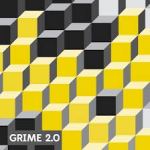 Various Artists
Various Artists
Grime 2.0 (2 discs)
Big Dada (dist. Redeye)
CD-DADA-226
Rick’s Pick
Now, if you prefer your grime instrumental (which means a lot less cursing, but also a lot less charming Cockney speed-rap), then consider this brilliant two-disc compilation from the Big Dada label, home of the legendary Roots Manuva. Where Lord of the Mics IV is more oriented towards the gritty and stripped-down, this collection tends towards bigger and flashier sounds, and while human voices do appear regularly they are almost always used as samples, for rhythmic purposes. This is giant-robot-with-a-broken-leg music, some of it reductively repetitive, some of it startlingly complex, and all of it pretty awesome, in a deeply weird sort of way.
 The Fabulous Thunderbirds
The Fabulous Thunderbirds
On the Verge
Severn (dist. City Hall)
0058
Let’s just get this out of the way up front: yes, it remains sad that the T-Birds lost original guitarist Jimmie Vaughan. But as long as the group is fronted by Kim Wilson, and as long as it continues to deliver tight, greasy, Texas-flavored blues and soul grooves as powerful as these, it will still be the Fabulous Thunderbirds. On the Verge, the band’s first formally-released album in eight years, is more soul than blues, harking back frequently to the sounds of Memphis and Muscle Shoals (notice in particular “Lovin’ Time,” a song that Dan Penn might have been proud to write) and avoiding guitar heroics in favor of an integrated ensemble sound that provides a perfect setting for Wilson’s plainspoken but soulful vocals. Great stuff.
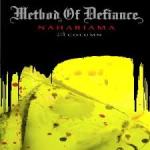 Method of Defiance
Method of Defiance
Nahariama 4th Column
M.O.D. Technologies (dist. Redeye)
MOD0010
No one can put together a freak-out avant-soul-funk supergroup like Bill Laswell, the bassist and producer whose list of musical IOUs reads like a Who’s-Who of the experimental funk cosmos. His second album fronting Method of Defiance finds him woking with a somewhat different cast of characters: cornetist Graham Haynes, keyboardists Robert Burger and Bernie Worrell, percussionist (and longtime Laswell collaborator) Aiyb Deng, turntablist/producer DJ Krush, and others. Truth be told, this outfit isn’t nearly as avant-garde as many of Laswell’s other projects have been. Intergalactic funk, dub reggae, electric jazz, and uncategorizable beat-based craziness all fly in and out of the mix, but the music is never unapproachable or inscrutable. For longtime Laswell fans like me, this is thrilling—and I think newcomers will love it too.
 Marsen Jules
Marsen Jules
Nostalgia
Oktaf
OKTAF04
Billed as “music inspired by Harold Budd,” these pieces of ambient music do indeed channel the sometimes dolorous, sometimes contemplatively joyful spirit of Budd’s best work. But whereas Budd’s sound almost always focused on the piano (sometimes with electronic adornments, and sometimes not), Jules’ compositions are all electronic. What make them sound Budd-ish are the relatively static harmonic movement and a particular style of chord voicing. At times I find the keyboard sounds to have a slightly cheesy, Casiotone edge to them (notice in particular “A Moment of Grace”), and the title track relies on a melodic idea that comes distractingly close to quoting George Gershwin’s “Summertime.” But overall, this is a very enjoyable album.
 A Fragile Tomorrow
A Fragile Tomorrow
Be Nice Be Careful
Piewillie
No cat. no.
This Charleston, SC-based power pop band may not be a national name yet, but if they keep touring behind the likes of Matthew Sweet and the Bangles that will probably change. (On the other hand, does anyone under the age of 35 listen to Matthew Sweet or the Bangles these days? Never mind.) For their fourth album they went into the studio under the supervision of production heroes Mitch Easter and Ted Comerford, and if you listen carefully you’ll hear guest vocals by the likes of Don Dixon and Susan Cowsill in there as well. The songs are what you’d expect, and what they should be: tightly tuneful with gorgeous harmonies and wistful, sometimes biting lyrics, and lots of beautiful, cascading guitars. Recommended to all popular music collections.
 Celer
Celer
Without Retrospect, the Morning
Glacial Movements
15
For reasons that are not entirely clear to me, I’ve been fascinated with ambient music ever since I first encountered Brian Eno in the early 1980s. But there’s “ambient” and there’s “seriously ambient,” and the output of the aptly-named Glacial Movements label typifies the latter: chords that float into view from a great distance, change shape like clouds for a few minutes, then recede again. In the case of Celer (a.k.a. Will Long), the clouds are particularly lovely and sometimes denser than they seem at first—but this is music for very specific tastes. Like mine.
 Clockwork
Clockwork
B.O.A.T.S. (Based on a True Story)
Life and Death (dist. Forced Exposure)
LAD 009
By turns glitchy, funky, house-y, and soulful, the full-length debut album from Italian techno duo Clockwork is impressive on many levels. As with most of the best techno music, Clockwork’s tunes hide complex and multilayered elements of texture beneath a thin veneer of simplicity: listen to the microscopic elements dancing quietly beneath Chasing Kurt’s vocals on “Running Searching,” or the way that a subtle two-step-derived groove emerges from the bleeps and sneezy synthesized hi-hat sounds on “Prisms.” The album is full of that kind of thing, and nicely rewards both casual and careful listening. Though I’m not sure it’s that great for dancing.
WORLD/ETHNIC
 Cesaria Evora
Cesaria Evora
Mãe Carinhosa
Lusafrica (dist. Harmonia Mundi)
662502
Rick’s Pick
Cape Verde has given rise to a significant number of great singers, but perhaps none as beloved as the great Cesaria Evora, who died just a couple of years ago and is still mourned by lovers of Afro-Latin song. Mãe Carinhosa is a posthumous collection of tracks she recorded with her longtime producer and collaborator José da Silva, but which have never been released before. Here you will hear hints of fado (notice in particular the quietly intense “Dor di Sodade”) and a coladera or two (“Tchon da França”), but mostly variations on the morna style for which she was famous. This is melancholy and deeply affecting music, and Evora’s voice is a dark-hued wonder. Highly recommended.
 Various Artists
Various Artists
Sound ‘n’ Pressure Story
Reggae Archive
RARC004CD
Rick’s Pick
In the late 1980s and early 1990s, a young reggae fan named Anthony Cummins got together with several musician friends and wrote a steppers anthem called “Warn the Nation.” It was so well received that he ended up forming the Sound ‘n’ Pressure label and releasing it as a 12″ single (with versions), eventually following it up with several more similarly-configured releases, all of them featuring a warm digital roots sound and a strictly conscious lyrical focus. The label didn’t last long, and all of its output is now available on this one CD compilation from the wonderful Reggae Archives label. A must for all reggae collections and all lovers of modern roots and dub.
 David Starfire
David Starfire
Ascend
Six Degrees
1132692
How many albums can you think of that feature both Natacha Atlas and Afrika Bambaataa? Not many, right? And those are only two of the guest stars on the latest release from electro-Asian producer/composer David Starfire. Also featured are DJ Cheb I Sabbah, rappers iCatching and Juakali, and the late sitarist Rik Sharaj, among many others. You’ll hear elements of bhangra, reggae, and hip hop scattered throughout the album, but the overall style can perhaps best be described as internationalist bass music: lots of squidgy synth lines, stagger-step beats, and juddering bass. Very nice.
 Romain Virgo
Romain Virgo
The System
VP
1936
Hardcore reggae fans may feel that Romain Virgo’s second album opens unpromisingly, with the conscious but decidedly non-reggae, acoustic-based title track. But it shows off his considerable strengths as a singer and songwriter, all of which he then puts to use in a much more traditional reggae setting on the remainder of the album, which should solidify his status as the most exciting non-dancehall reggae artist to come out of Jamaica in nearly a decade. Great songs, great voice, solid (but maybe slightly slick) rhythms—very, very nice.